Studio Tenn's DRIVING MISS DAISY Beautifully Captures The Spirit of Alfred Uhry's Play
Beki Baker Directs Rona Carter, Bakari King and Eric Pasto-Crosby
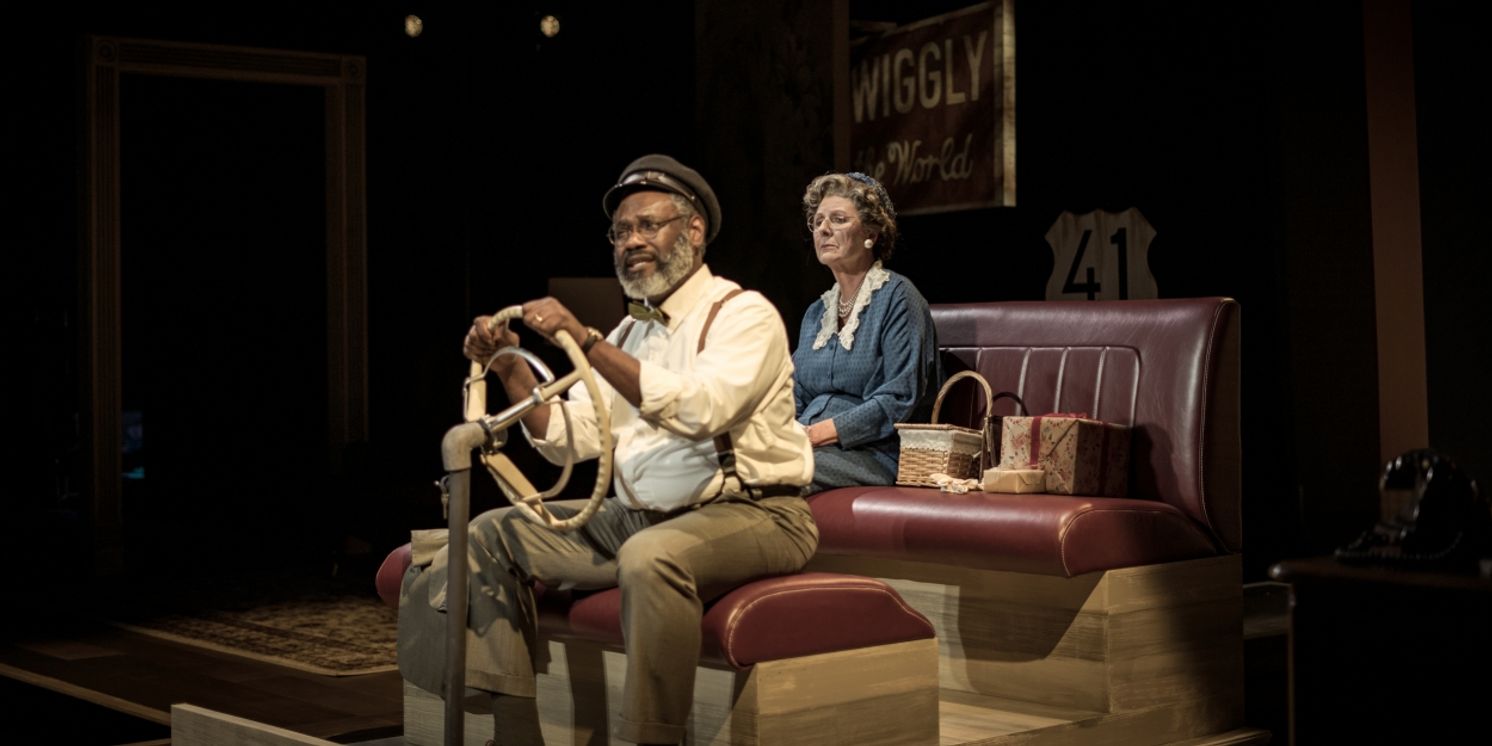
Oftentimes, over the course of an essentially 40-year career, a theater critic finds himself reviewing a show so often that he can easily parrot the words being delivered onstage by actors he’s admired from across the footlights for most of that time. When that happens, memories come and go like so many fireflies flickering in the sticky humidity of a sweet summer’s night – it’s not so much an annoyance and it’s certainly not unexpected. Rather, it’s like a homegrown memory that springs to mind whenever you hear a snippet of a song, smell the fragrance of honeysuckle in the air or in your mind’s eye you see a photo of someone you’ve loved forever who has been gone from your life longer than they were ever in it.
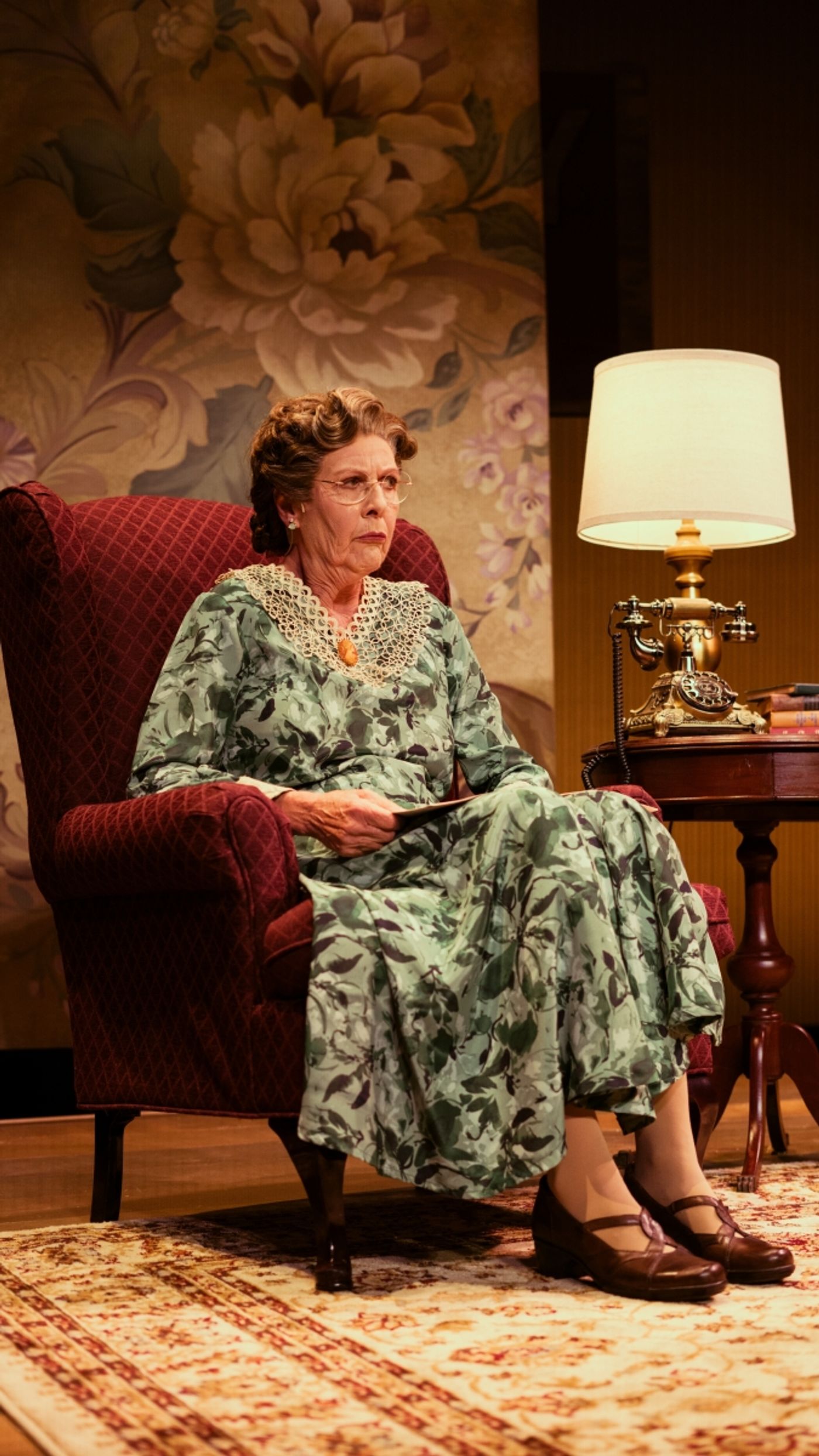
Thanks to the imagination and the vivid memories of his own Southern upbringing, playwright Alfred Uhry has created a number of plays – Driving Miss Daisy, The Last Night of Ballyhoo, Parade, The Robber Bridegroom among them – that have that same kind of impact on your psyche, which carry that same emotional heft that can cause memories to fill your mind and the comforting recollections of what was once your home to flood your heart. And so, strictly speaking from one’s perspective as a professional theater-goer, you always look forward to the respite provided by Uhry’s work no matter how often you may have spent in the company of Miss Daisy Werthan, Hoke Colburn and Boolie on the oh-so-familiar streets of Atlanta, or with Boo, Layla and Sunny preparing for the social events of the last night of Ballyhoo, or in anguish over the heartrending realities of what prejudice wrought in the lives of Leo and Lucille Frank.
Alfred Uhry is a Southern writer who knows our region better than most and he uses the power of his words and the artistry of his pen to create moments and scenes in plays and musicals that are as authentic as the little rivulets of condensation that snake their way down the outside of a glass of iced tea on a too-hot afternoon in March, for goodness’ sake. And so it is with a very real sense of anticipation that audiences went to the Turner Theatre at the Factory in Franklin last Thursday night for the opening of Studio Tenn’s latest show Driving Miss Daisy, starring three of Nashville’s most revered and widely appreciated actors – Rona Carter, Bakari King and Eric Pasto-Crosby – bringing to life the characters we all feel as if we have known since way, way back.
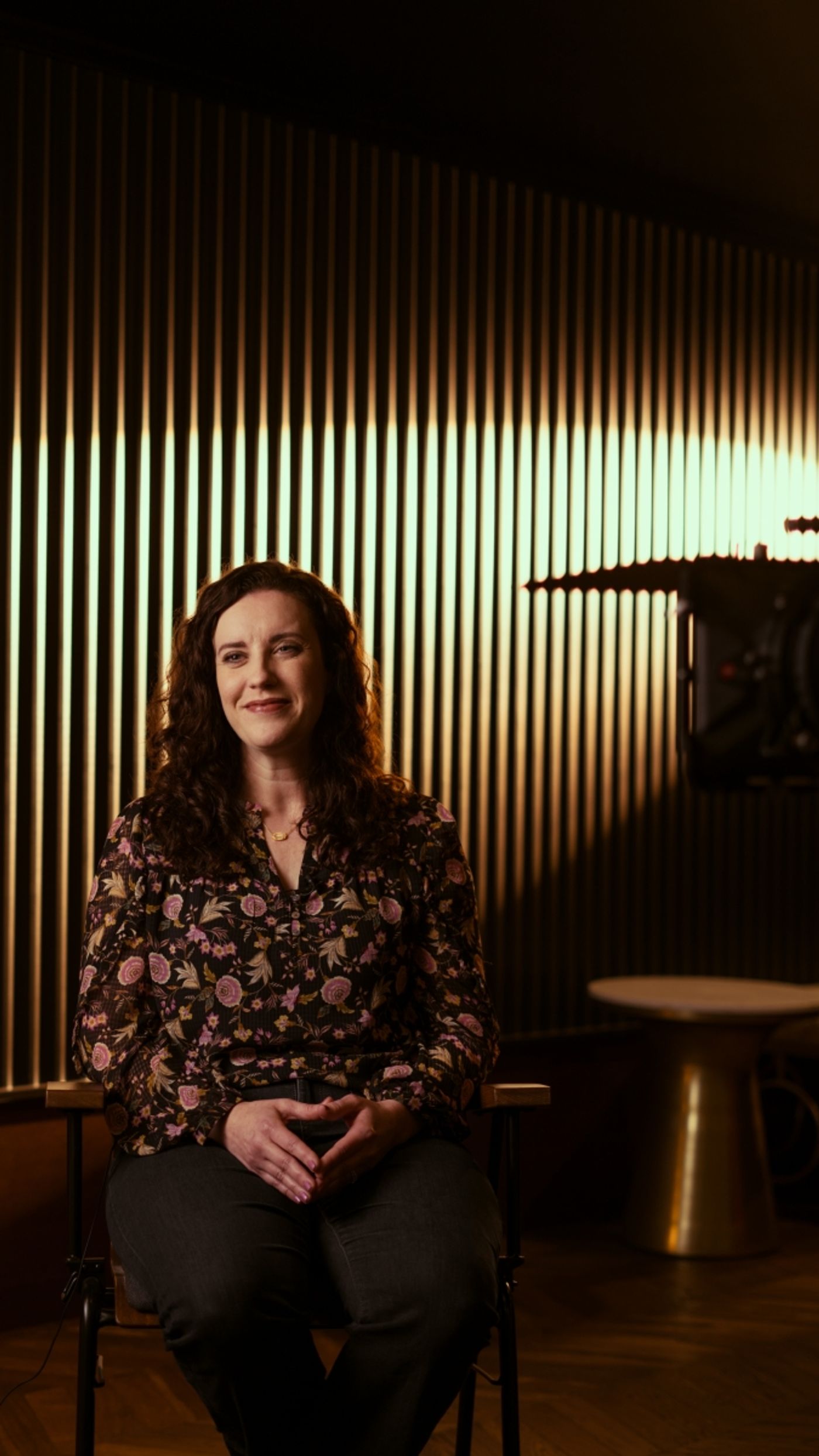
Under the direction of Beki Baker, the chair of the theater department at Nashville’s Lipscomb University – a director we’ve given so many glowing reviews to over the years they may have lost their meaning by now, but who is without question one of our very favorites – we had absolutely no worries about how she would treat the aforementioned Miss Daisy, Hoke and Boolie, or how her rendition of Uhry’s acclaimed, Pulitzer Prize-winning play would compare to the other productions we’ve seen over the past 37 years. She’s from Texas, which we won’t hold against her since it also means she knows these characters of which we write today as well as we do, and we know enough of her own family ties to be able to say she gets her Southern-fried bona fides honestly and genetically, and we’ve heard her own stories enough to know she venerates the ideals of the Southern family.
Still, we approached opening night with some healthy skepticism and trepidation – despite all the hubbub that had circulated during the run-up to that glorious first night during which, filled with anticipation and the sheer delight that surely accompanies every theatrical debut – that Studio Tenn’s Driving Miss Daisy might not measure up to our preconceived notions. What if, we wondered, it doesn’t distinguish itself from the eight other productions we’ve reviewed since 1987 (and the countless others we didn’t even write about) and we’re let down? What if we can’t find anything new and exciting about yet another Driving Miss Daisy?
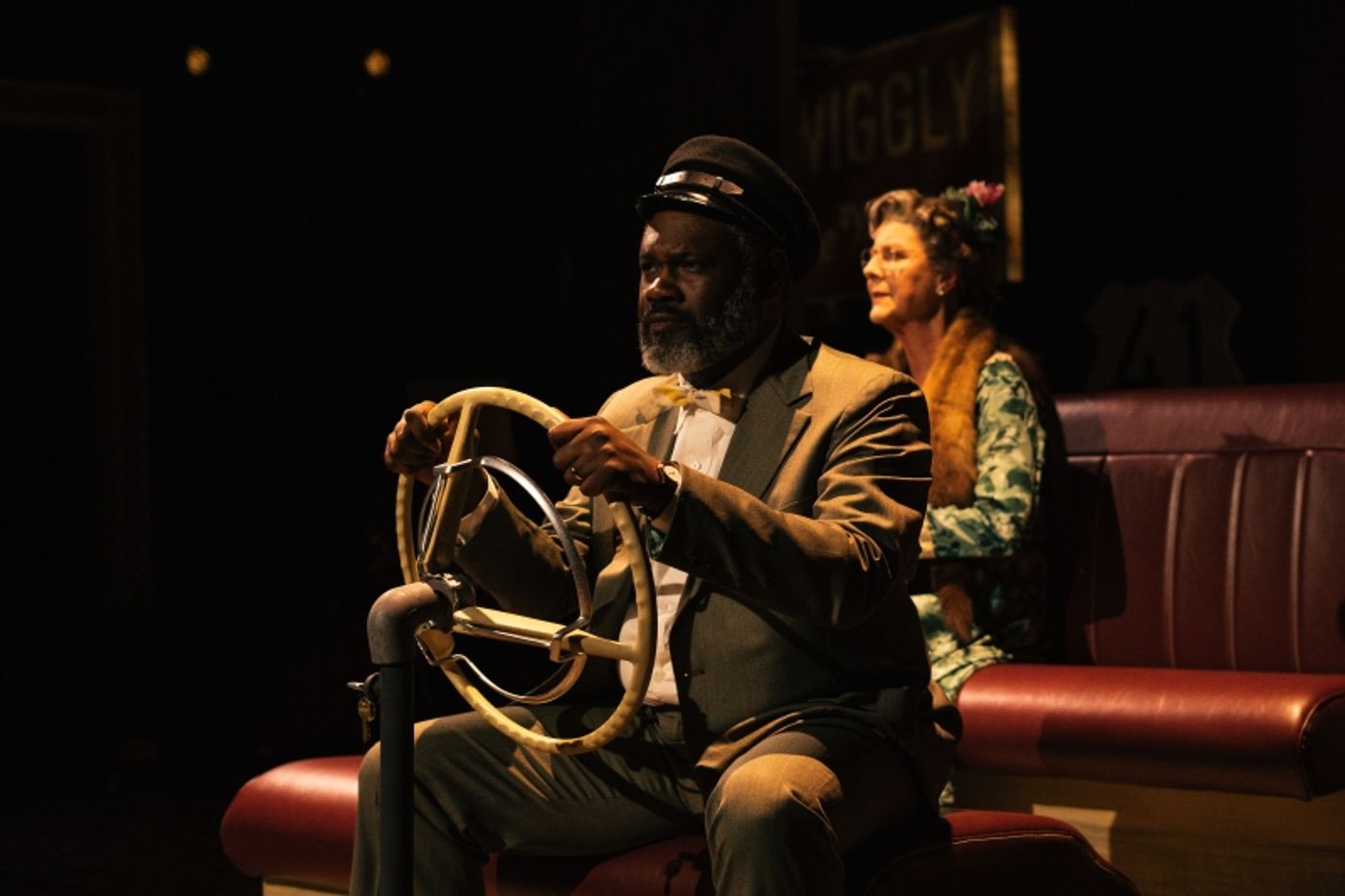
These, gentle readers, are the thoughts that keep aging theater critics awake at night. We are happy to say that Beki Baker, artistic director Patrick Cassidy and every designer and artist and usher and bartender and box officeholder in Studio Tenn’s employ have once again done good. Real good, y’all. This Driving Miss Daisy will make you feel like you’ve been back home to see Mama and them and you’re ready for a return trip as soon as you possibly can make it.
There comes a moment very near the end of Studio Tenn’s heartfelt production of Driving Miss Daisy – a transition between the play’s final two scenes in the story of a beloved Atlanta Jewish matron and her black chauffeur/best friend and confidant – that is perhaps the most moving element in Baker’s brilliantly directed revival of the acclaimed Southern comedy-drama.
During that moment, actor Bakari King (as Hoke Colburn, the aforementioned driver for “Miss Daisy” Werthan, who is played by Nashville theatre icon Rona Carter), pays tribute to the relationship between the two characters and their sentimental attachment to the automobiles that figure so prominently in Uhry’s depiction of an evolving South between 1948 and 1973. In the grand scheme of all things theatrical, it is a rather brief and easily overlooked moment (especially if audience members take the opportunity to look at their playbill, unwrap a breath mint or to make an aside to their seatmates), the briefest of emotional moments in more than two hours of them.
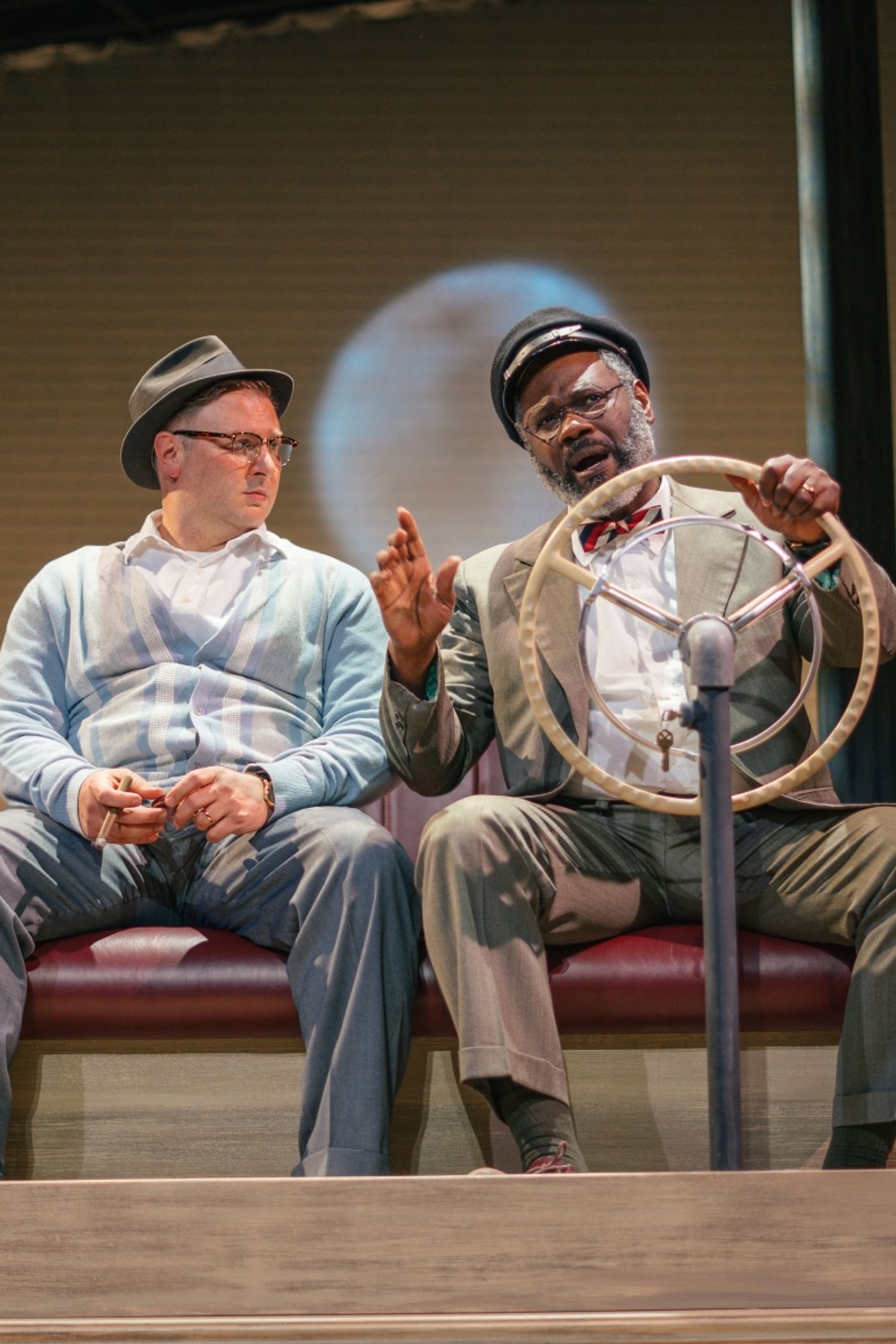
I can’t tell you exactly what happens in order to not spoil it for you and, I confess, you might not be as enraptured by it as I was on opening night. But for me, it encapsulates the camaraderie and genuine affection that exists between the characters and the actors in Baker’s sublime ensemble (including Eric Pasto-Crosby as the quintessential Boolie Werthan) and I have to admit: I wrote this with tear-filled eyes as I recalled it some 12 hours after the moment on opening night in which I witnessed it for myself, and I still get emotional more than 96 hours later.
It’s absolutely lovely and it captures the sweetly sentimental tone of Uhry’s play beautifully and it’s almost enough to make you want to see Driving Miss Daisy for that one moment alone (but rest assured, there’s so much else to recommend the play for theater-goers who may think they’ve seen enough productions of it over the years).
Carter is commanding as the Atlanta widow who must get used to the fact her insurance company won’t continue to give her coverage after her latest fender-bender that ended up with her car over a garden wall and teetering over a neighbor’s garden shed. Her Miss Daisy is self-assured, with certitude on full display, which softens throughout the playing time, allowing Carter to create a memorable characterization.
As Hoke Colburn, King proves her equal in every sense of the word with his vivid performance, showing charm and grace throughout while standing his ground against Mrs. Werthan’s sometimes high-strung and off-putting demeanor. It’s easy to see the pair’s growing sense of family and friendship that develops over the 25-year period depicted in the play.
Pasto-Crosby gives one of the most effective performances as Boolie that we have seen over the years and he conveys with startling authenticity a son’s conflicting emotions when dealing with a beloved parent who refuses to accept help when it’s needed.
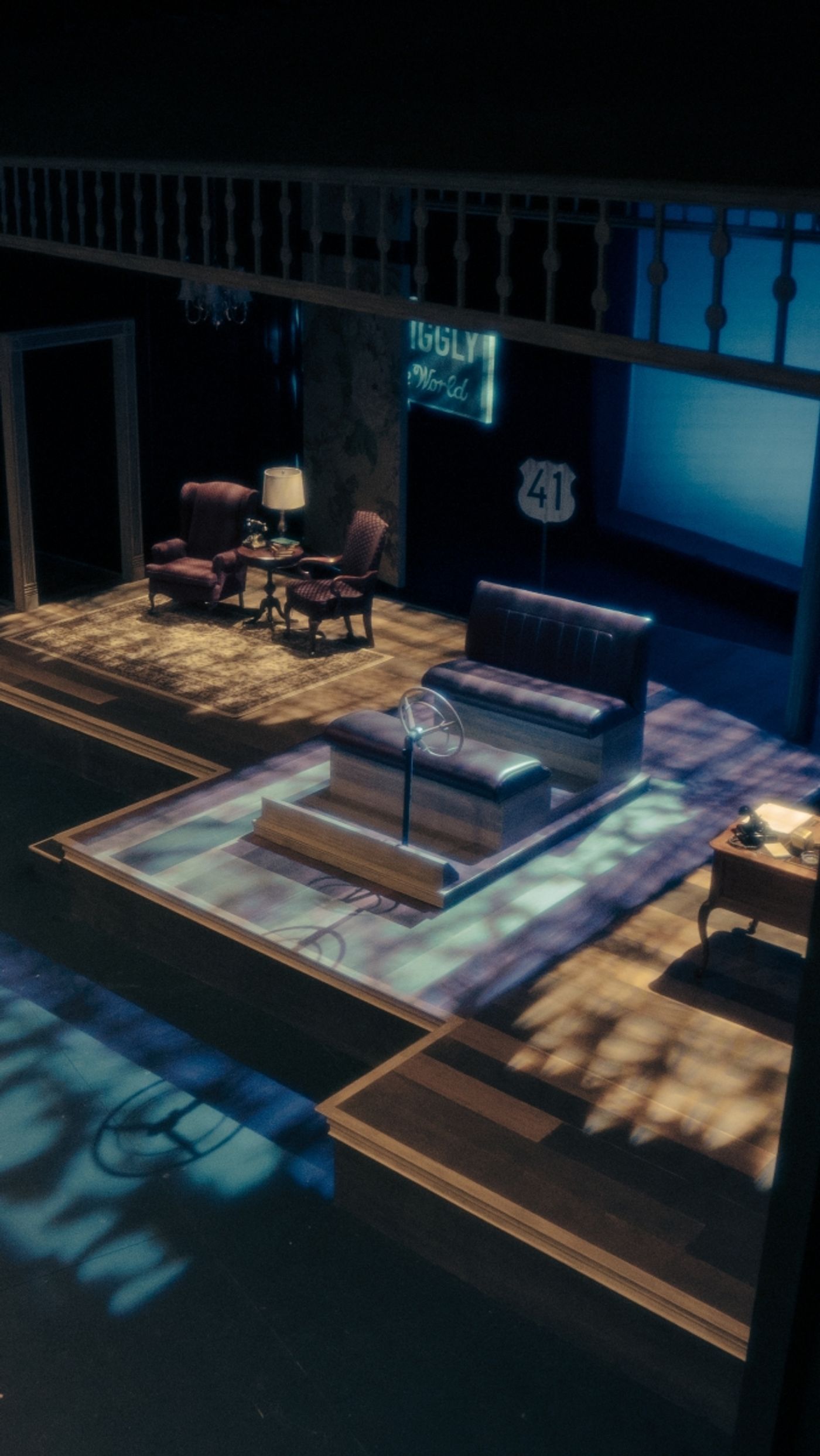 Baker’s direction keeps the play’s actions moving along at a good clip, ensuring that each vignette artfully shows the evolution of the relationships at its heart, while never allowing the good-natured spirit and Uhry’s sense of humor to be overshadowed.
Baker’s direction keeps the play’s actions moving along at a good clip, ensuring that each vignette artfully shows the evolution of the relationships at its heart, while never allowing the good-natured spirit and Uhry’s sense of humor to be overshadowed.
As is to be expected, Driving Miss Daisy is another beautifully designed work from Studio Tenn’s estimable band of artists who bring the show to life with a stunning aesthetic, under the direction of Mitchell E. White. Andrew Cohen’s lovely scenic design is beautifully lighted by Darren E. Levin’s picture-perfect illumination, while Danny Northup’s sound design ensures that Uhry’s memorable lines are heard unimpeded. And Matt Logan’s gorgeous costumes clothe the characters in exquisite styles evocative of the period.
No doubt, tickets for Studio Tenn’s Driving Miss Daisy are selling at a fast clip – so much so that the show has already been extended – and it’s so worthy of your time, I cannot recommend it more highly. Sure enough, it’ll remind everyone who reads this review of the immeasurable impact of every mama, granny, mamaw, or great-grandmama who has ever touched your life.
Driving Miss Daisy. By Alfred Uhry. Presented by Studio Tenn. Directed by Beki Baker. Stage managed by Marlee Shelton. At The Turner Theatre, The Factory in Franklin. Running through March 24. Running time: 2 hours, 15 minutes (with one intermission). For further information, go to www.StudioTenn.org.
photos by Christian Hall
Videos

